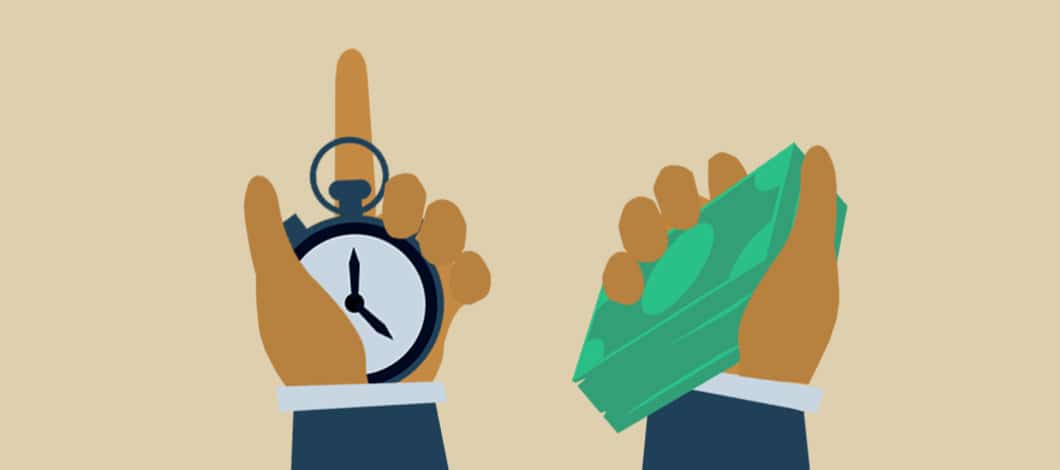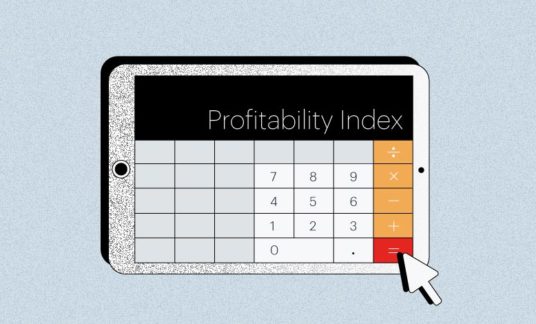The average long-term small business loan is $644,500, according to the Small Business Administration (SBA).
If you’re funding long-term projects, that may work fine. For many small business owners, however, some needs arise that require far less capital. The average short-term loan is about $20,000.
What Is a Short-Term Business Loan?
Sometimes, businesses need financing but don’t want to deal with long-term debt financing such as their bank or SBA loan options. A short-term business loan provides funding for immediate needs but requires you to pay it off much faster than a conventional business loan.
Depending on your situation and the lender, short-term loans can be paid off in a few months or extend from one to three years.
Why Do Small Businesses Get Them?
Small businesses might get short-term loans for a variety of reasons, including:
- Startup costs
- Working capital
- Emergency repairs
- Cash-flow shortfalls
- Business expansions
- Equipment purchases
Some small businesses will use short-term loans to finance marketing campaigns and pay off the loans with the money they generate. Others will use them as a way to do debt consolidation.
Whatever the reason, you’ll want to evaluate your options and find the best short-term business loan for your organization’s needs.
What Are the Pros and Cons?
There are both pros and cons for short-term loans that you should know about.
Advantages
- If you’re looking to find the best short-term loans for your business, you probably need cash fast. Short-term loan applications are quick and easy to fill out and you can typically get approval within a few hours. In many cases, you can get same-day or next-day funding.
- Smaller funds come with shorter terms. You don’t have to worry about a large loan burdening your business for years to come. You can focus on your immediate needs and solve your immediate problems quickly.
- If your credit is less-than-perfect, short-term business loans are easier to get. If you have bad credit or limited credit history, you may still be able to get a small business loan. When you pay the loan back in time, it can also help build your credit history for the future.
According to the Federal Reserve Bank, speed of decisions and easier funding requirements are the top 2 reasons small businesses are using online lenders.
Disadvantages
- The biggest disadvantage to a short-term loan is that you pay a premium for the loan. In other words, you should expect a higher interest rate versus a long-term loan. A short-term loan will also increase your debt-to-income ratio and will temporarily impact your credit score.
- A short-term business loan can be an easy way to deal with temporary situations if it’s used properly. If you aren’t good at handling credit or fail to pay off your loan in time, it can have a long-term negative impact.
- Depending on the lender, you may be required to make monthly, weekly, or even daily payments.

What Is the Best Short-Term Business Loan?
When you’re searching for who can provide short-term loans for your business, you will have plenty of choices. The first stop for most people will be to talk to the financial institution that handles your business banking.
However, there are other choices online that can provide cash quickly when the need arises for short-term loans. According to the Small Business Association’s Lending Report, alternative lending continues to grow in popularity.
One of the advantages of using short-term business lenders online is that many sites aggregate loans from multiple providers. Rather than have to shop bank by bank, you can shop multiple lenders at the same time.
Each of the lenders listed below can handle short-term loans, but some are known for their expertise with particular sectors.
If you want to see if you qualify for a loan and get pre-approved, use Fast Capital 360’s Short-Term Business Loan Calculator to estimate your payments.
Compare Lenders
When you are comparing short-term business loans, there are several factors that will play into your decision.
You will want to consider:
- Loan amounts
- Funding schedule
- Repayment terms
- Repayment schedules
- Interest rates
- Loan and/or origination fees
- Collateral requirements
- Prepayment penalties (if any)
You also will want to consider the type of loan and objectives for taking out a short-term business loan in the first place. Here is a roundup of some of the top short-term business lenders based on these factors.
Quick Cash
Both Kabbage and OnDeck provide quick approval and funding.
Kabbage requires you to be in business for at least a year, have a business checking account, and previously been approved for funding by Kabbage, or have a current American Express business card relationship. Kabbage is an American Express company and also provides conventional banking options, such as business checking.
OnDeck funds loans ranging from $5,000 to $250,000 and repayment terms up to 18 months. OnDeck requires a year in business, annual revenue of $100,000 and a personal FICO score of at least 600.
Lines of Credit
BlueVine offers lines of credit up to $250,000 with no prepayment penalties, allowing you to draw as you need and pay for only the credit you use. Businesses need a minimum of 2 years in business, monthly revenue of $25,000 or more and a personal credit score of at least 650.
Fundbox also provides revolving lines of credit with no prepayment penalty. Businesses need to have $100,000 in revenue, at least 6 months in business and a FICO score above 600.
Invoice Factoring
When you’re waiting on payment from those which you’ve extended credit, you can get an advance against your invoices, called invoice factoring or accounts receivable financing.
Lendr will fund up to the full invoice amount with fees ranging between 3% and 5% per invoice. If you are using the funds to meet payroll and don’t need invoicing and collections, fees can drop down to between 0.5% and 3% per invoice.
Blue Vine also offers invoice factoring credit lines up to $5 million with no long-term contracts. Rates are as low as 0.25% a week on outstanding balances.
Low Rates
Credibility Capital and ForwardLine offer low-rate short-term loans.
Credibility Capital funds loans up to $350,000 with terms of up to 48 months. It requires 2 years in business and current revenue generation. Note: It has some geographic limitations.
ForwardLine offers terms from 6 to 15 months and loans up to $150,000. It requires a minimum credit score of 500, annual revenue of at least $75,000 and a minimum of 6 years in business.
Poor Credit
SnapCap is a LendingTree business and offers loans from $10,000 up to $1 million with terms ranging from 3 to 36 months. SnapCap requires 6 months in business, annual revenue of $100,000 and a minimum FICO score of 500.
OnDeck requires a personal credit score of at least 600, one year in business and annual revenue of $100,000. It offers loans from $5,000 to $250,000 with repayment terms of up to 18 months.
Startups
Accion is a nonprofit that provides funding from pre-seed to growth-stage. Loans are up to $100,000 with flexible repayment terms. Minimum requirements include a year in business and $50,000 in annual sales.
Lendio requires six months in business and a credit score of 680 or higher. It offers loans from $500 to $750,000 with both short-term and long-term repayment options.
Equipment Financing
While some short-term business loans are unsecured, equipment financing provides you options such as using the equipment you’re buying as collateral for your loan.
Large Loans
Rapid Finance offers small business loans from $5,000 up to $1 million with loan terms up to 60 months.
SnapCap provides funding from $10,000 up to $1,000,000 with terms from 3 to 36 months. It requires 6 months in business, monthly gross revenue of $8,500 and a minimum FICO score of 500.
Peer-to-Peer Lending
Peer-to-peer business loans often feature more relaxed requirements than conventional lenders.
Funding Circle offers loans up to $500,000 with no minimal annual revenue requirements but does require a minimum credit score of 660 and 2 years in business.
Peerform provides loans from $4,000 to $25,000. It requires a minimum credit score of 600 and a 40% maximum debt-to-income ratio.
Microloans
Kiva is a nonprofit that uses crowdfunding to fund its loans. You may qualify for 0% interest loans between $1,000 and $10,000. It evaluates based on overall financials and doesn’t rely strictly on years in business, credit scores or net worth.
Accion requires at least 2 years in business, annual sales of at least $50,000, and a minimum of 20$ ownership of the business.
The average microloan is about $13,000, according to the SBA. If you are looking for a microloan, you may want to check the (SBA) lender match, which connects business owners to potential lenders that offer funding backed by the SBA.

Taking Out a Short-Term Small Business Loan
According to the non-profit SCORE Association, more than 80% of businesses that fail do so because they face financial hurdles they can’t overcome which leads to poor cash-flow management. Short-term loans can be an easy way to get past fleeting problems.
Short-term loans can help bridge the gap while you’re waiting for customers to pay you what they owe or to fund growth initiatives. While you will most likely pay high interest rates for the privilege of getting a short-term business loan, if you pay back your loan on time, you may pay less interest in total than you would with a long-term loan.
Before taking out any loan for your business, however, you must be able to pay it back. Failing to do so can hurt your credit score and limit your ability to get future financing or get credit with your vendors or suppliers.










